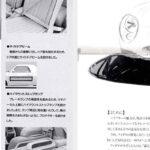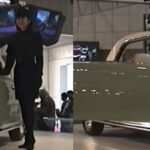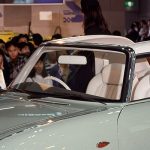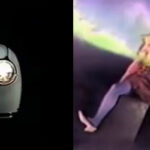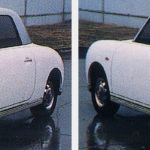1988 – Figaro Team Created To Create Prototype
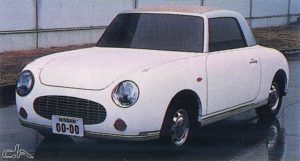
This clay model was the start of the journey for the Figaro
Owners of the car may be particularly interested in the early concept design of the Figaro. We have published some wonderful pictures that demonstrate how the early design was spot-on and very little actually changed when the car went into full production. This is truly remarkable, and it’s a testament to the designers of the car that their original concept still remains so recognisable today. It’s a great example of how the original design can be so timeless and classic.
The Figaro was first created around 1988 when a specialist team was pulled together to create a new car. the initial design idea came from Japanese designer Shoji Takahashi who was inspired by Swatch watches – the notion that it was possible to give identical products different casings. In 1988 the magpies of the Figaro design team took all the best and shiniest bits from a variety of European cars and fused them into an almost cartoon whole. There’s something there to remind you of just about every classic car you have ever seen. It all started with a clay model which we have the original pictures Read more.
The car was actually manufactured under license by a company named Takata Kogyo, which was an approved manufacturing partner of the Nissan Motor Company. We assume the main reason that Nissan chose Takata to produce the Figaro was due to their knowledge of building convertible cars. The company was also commissioned to produce the Be-1 & PAO. Looking on the Web we found this rather interesting mission statement from the president ‘Do not give up, do not despair, do not retreat, we aim to be a company trusted by everyone as a corporate philosophy‘.
We have some wonderful pictures of the very first ‘concept car’ built around 1998 and used to promote the Figaro in the 28th Tokyo Motor Show – 26th Oct – 6th Nov 1989 – 1st Launch of Figaro to public. Read more
THE DESIGN TEAM
This is the only picture we can find, it would be great to name them if anyone knows, email the club
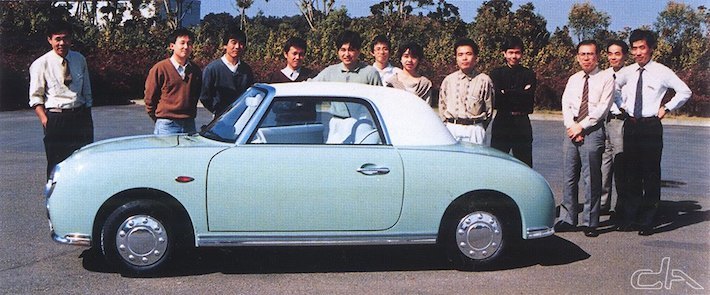
EARLY CGI CONCEPT
The rear part of the car changed with the addition of the hinged brackets and a larger number plate area.
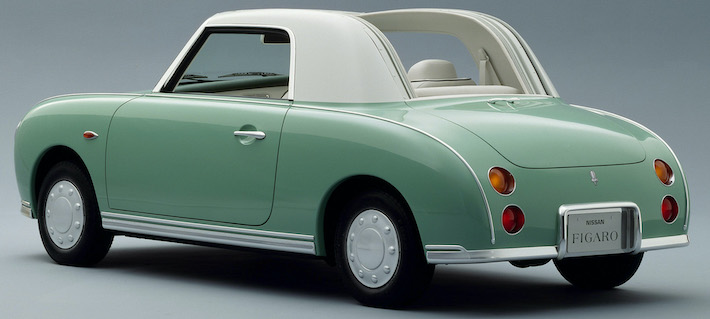
EARLY INTERIOR DESIGN
You can see changes to the gear stick as the console ends with a rounded design. Also, the Clarion radio includes no CD player and is much smile than the version we know now.
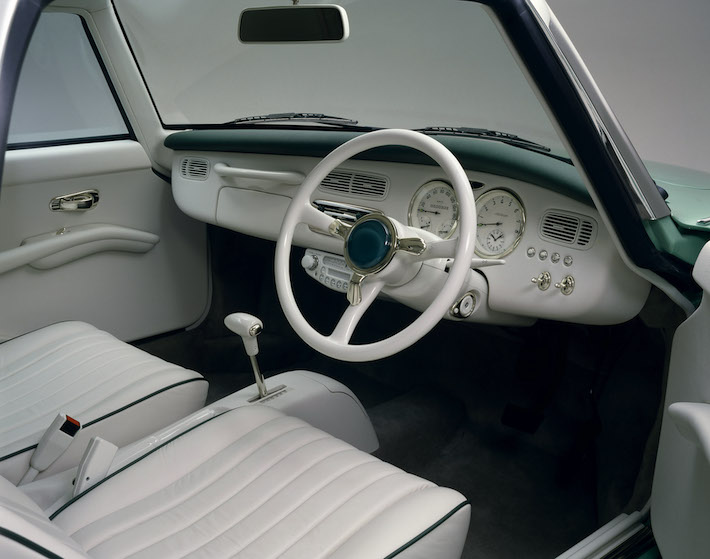
CLOSER LOOK AT THE GAUGES AND SWITCHES
Very nice gauge design and a different clock face. Also only 4 warning lights with the rear heater glass and low oil light missing.
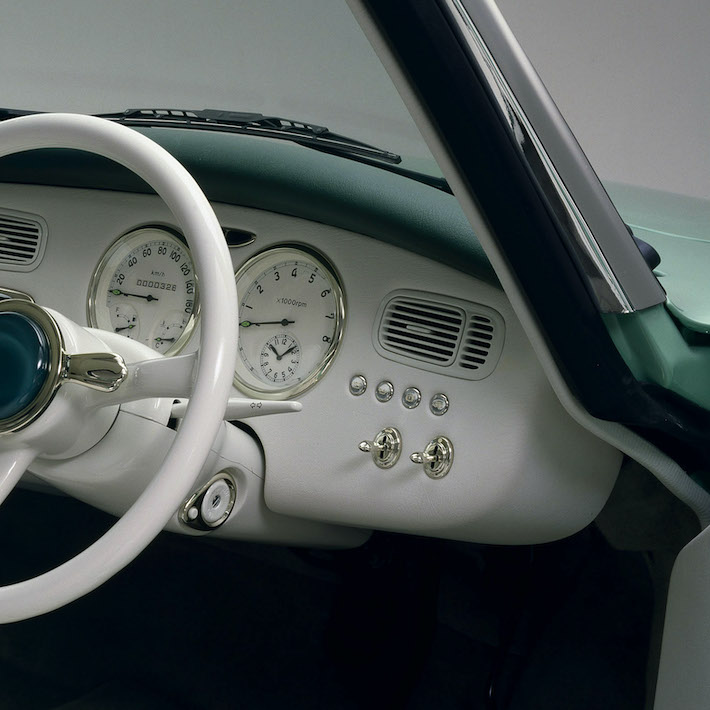
CLOSER LOOK AT THE RADIO/TAPE PLAYER AND GEAR STICK
The console contains the gear selector rather than it being an insert. The Radio/tape player is much slimmer.
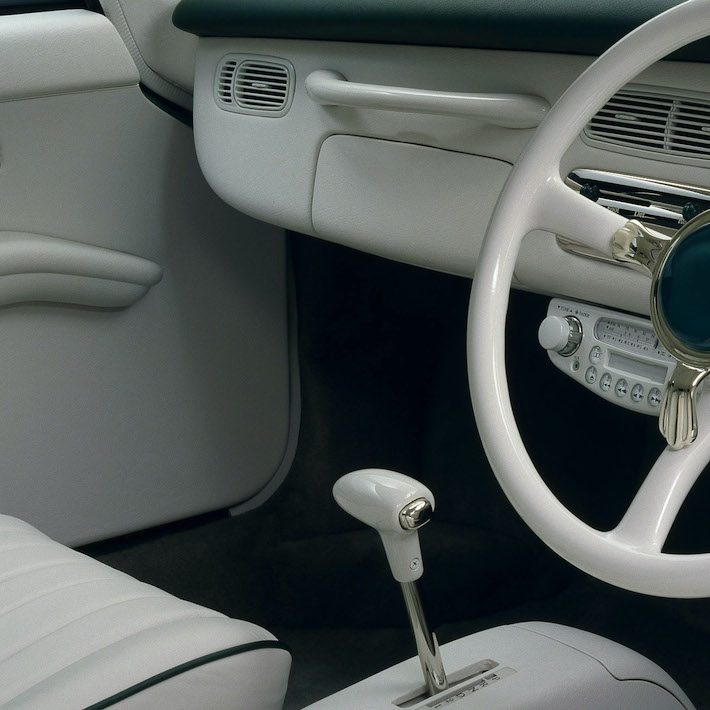
WATCH A VIDEO OF THIS CAR
This car was used to promote the Figaro at the 28th Tokyo Motor Show. You can see the changes above plus the bonnet/hood which also changed when the car went into production. (scroll forward to 6.31-7.38)


